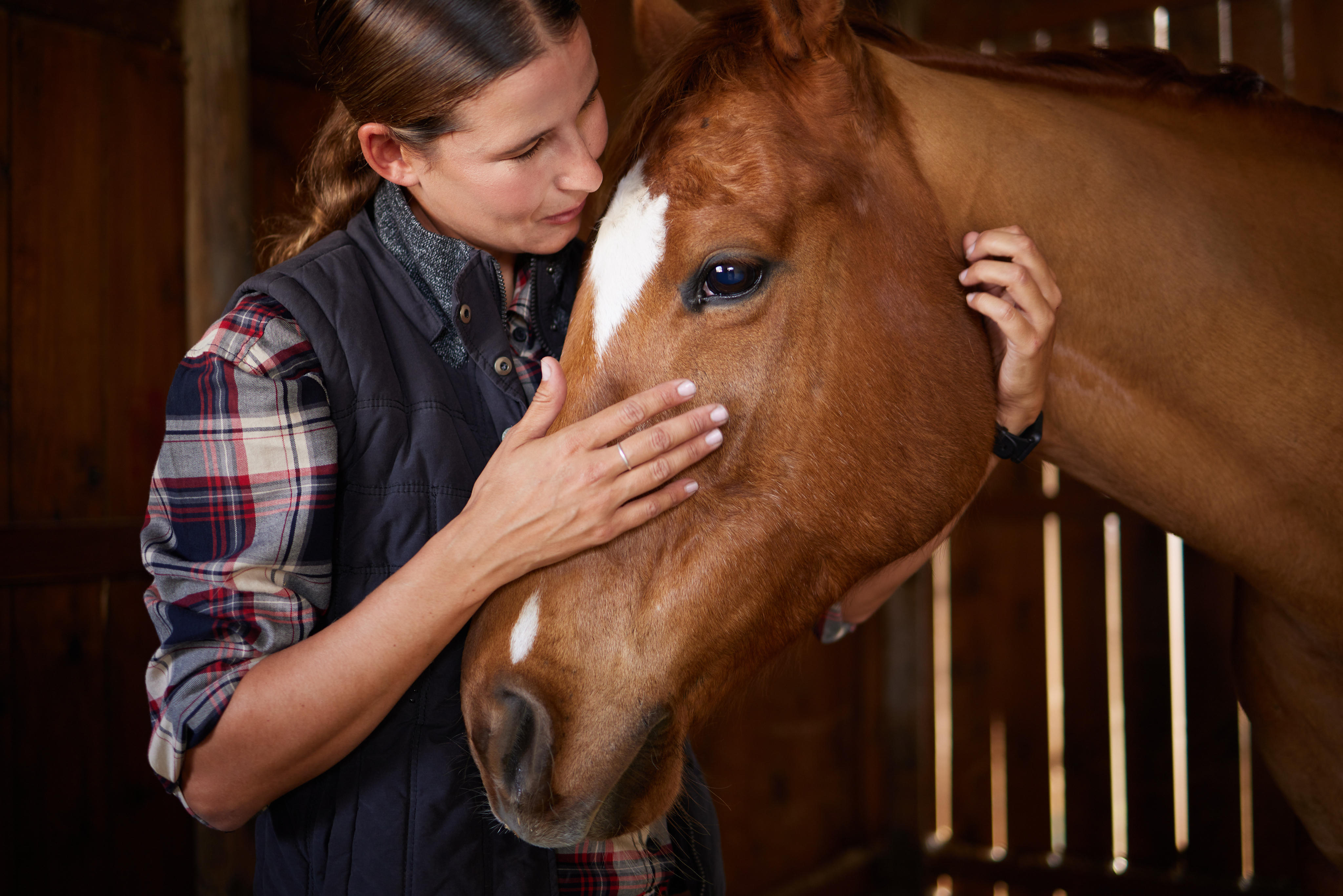Disease Overview
Eastern Equine Encephalomyelitis (EEE) and Western Equine Encephalomyelitis (WEE), sometimes called “sleeping sickness,” are caused by viruses that attack the brain and spinal cord. Birds and rodents are the primary reservoirs, and the diseases are spread by mosquitos. Unvaccinated horses are particularly susceptible to EEE and WEE and often serve as sentinels of the diseases, which also affect humans. EEE is more common than WEE and is found widely in several regions of the United States, especially in areas with high mosquito populations.
Merck Animal Health Solutions
PRESTIGE® 5
PRESTIGE® 3 + WNV
PRESTIGE® 3
PRESTIGE® 4
PRESTIGE® 5 + WNV
Transmission Parasite Life Cycle
EEE and WEE are transmitted only by the bite of infected mosquitoes; direct transmission between horses and people does not occur.
Clinical Signs
Infection affects the central nervous system.
- Moderate to high fever (>101.5)
- Severe depression
- Lack of appetite
- Behavior changes
- Impaired vision
- Circling or head pressing
- Muscle twitches
- Inability to swallow
- Weakness, incoordination
- Paralysis of one or more limbs
- Inability to stand
- Convulsions, death
Risk Factors
- High mosquito population
- Standing water
- Vaccination is recommended as a core protection strategy
References
“Eastern & Western Equine Encephalomyelitis,” American Association of Equine Practitioners, copyright 2020,
aaep.org/guidelines/vaccination-guidelines/core-vaccination-guidelines/easternwestern-equine-encephalomyelitis.
“Equine Encephalitis (EEE/WEE/VEE),” USDA Animal and Plant Health Inspection Service, Dec. 29, 2020,
www.aphis.usda.gov/aphis/ourfocus/animalhealth/animal-disease-information/equine/eee-wee-vee/equine-encephalitis.
“Eastern Equine Encephalitis (EEE),” Equine Disease Communication Center: Disease Fact Sheet, EDCC and AAEP, 2017, aaep.org/sites/default/files/Documents/Outside%20Linked%20Documents/DiseaseFactsheet_EEE%20Cobranded.pdf.
“Western Equine Encephalitis (WEE),” Equine Disease Communication Center: Disease Fact Sheet, EDCC and AAEP, 2017, https://aaep.org/sites/default/files/Documents/Outside%20Linked%20Documents/DiseaseFactsheet_WEE_FINAL%20Cobranded.pdf




 Go To United States
Go To United States Algeria
Algeria Argentina
Argentina Australia
Australia Austria
Austria Bahrain
Bahrain Belgium (Dutch)
Belgium (Dutch) Brazil
Brazil Canada (English)
Canada (English) Chile
Chile Colombia
Colombia Croatia
Croatia Czech Republic
Czech Republic Denmark
Denmark Ecuador
Ecuador Egypt
Egypt Finland
Finland France
France Germany
Germany Greece
Greece Hungary
Hungary India
India Indonesia
Indonesia Iraq
Iraq Ireland
Ireland Israel
Israel Italy
Italy Japan
Japan Jordan
Jordan Kuwait
Kuwait Lebanon
Lebanon Malaysia
Malaysia Mexico
Mexico Morocco
Morocco Netherlands
Netherlands New Zealand
New Zealand Norway
Norway Oman
Oman Panama
Panama Peru
Peru Philippines
Philippines Poland
Poland Portugal
Portugal Qatar
Qatar Romania
Romania Russian Federation
Russian Federation Saudi Arabia
Saudi Arabia South Africa
South Africa South Korea
South Korea Spain
Spain Sweden
Sweden Switzerland (French)
Switzerland (French) Taiwan
Taiwan Thailand
Thailand Tunisia
Tunisia Turkey
Turkey Ukraine
Ukraine United Arab Emirates
United Arab Emirates United Kingdom
United Kingdom Uruguay
Uruguay Yemen
Yemen Global
Global